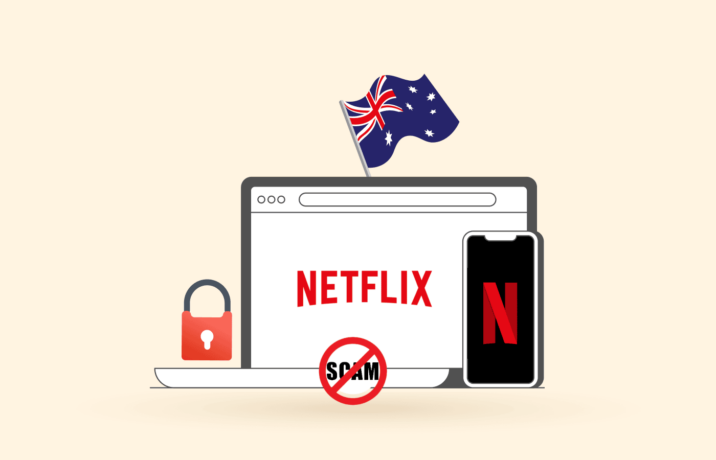The latest phishing scam is targeting Netflix customers through emails asking to update their payment details. Users must stay alert and do not click on any such link as it could lead to their financial information getting stolen.
Scamwatch, a cybercrime tracker operated by the Australian Competition and Consumer Commission (ACCC), used Twitter to warn Netflix users of this latest phishing scam.
Double-check the email source
The cybercrime tracker warned to double-check the source of the email asking to “update payment details.” On that premise, Scamwatch mentioned not to click on the link and go directly to the official website to check your account.
Phishing emails would often push you to open a link and follow their instructions, leaving you vulnerable as soon as you land on the targetted URL. In this case, the ACCC advised users should not click on a Netflix account link in an email, saying, “your account has been disabled.”
Fresh warnings of Netflix phishing scams. Be careful of emails asking you to click on a link to update your account. Don’t click on the link, if unsure go directly to the website to check your account. pic.twitter.com/pqrbXf0Gzb
— NASC Scamwatch (@Scamwatch_gov) October 30, 2020
Phishing scams are designed to look identical to that of original and often copy the Company’s format, including their branding and logo.
The users get bluffed as the page looks genuine. With so much similarity, a user may enter its credentials unknowingly. After that, the phishing page will ask for your financial details, such as credit card numbers. And guess what, it will not be Netflix at all.
With that, your personal information will be in scammer’s hands, which they can then use for further purchases.
How do I know if an email is actually from Netflix?
In case you receive an email requesting your username, password, or payment method, how would you identify it was Netflix?
At first, Netflix never asks for such sensitive information in a text or email. The following details would never be asked in an email by the streaming giant:
- Netflix passwords
- Credit or debit card numbers
- Bank account details
Let alone this Netflix phishing email campaign, if any email you receive links to a URL that you do not recognize, do not click on it. It is that simple. It only requires some common sense. And in case you end up clicking mistakenly, do not provide any sort of information to that site.
There are specific steps that Netflix advises users to do if they clicked a link or provided personal information, which include:
- Changing your Netflix password to a strong one as quickly as possible.
- Update your account password on any website you were logged in to.
- If you entered any payment information, contact your financial institution immediately, and cancel it.
- Send out a message to phishing@netflix.com explaining the situation.
Ironically, taking advantage of the COVID-19 pandemic, scammers are attacking in large numbers. Australians lost over $250K to phishing scams in September 2020 alone.
With the ever-rising cybercrime threats, encrypting your internet traffic and hiding your IP address through a tool like VPN is no longer an option but a must. If you wish so, go through our list of top Netflix VPNs that can help you enjoy your favorite movies and shows on Netflix without compromising on security and privacy.
